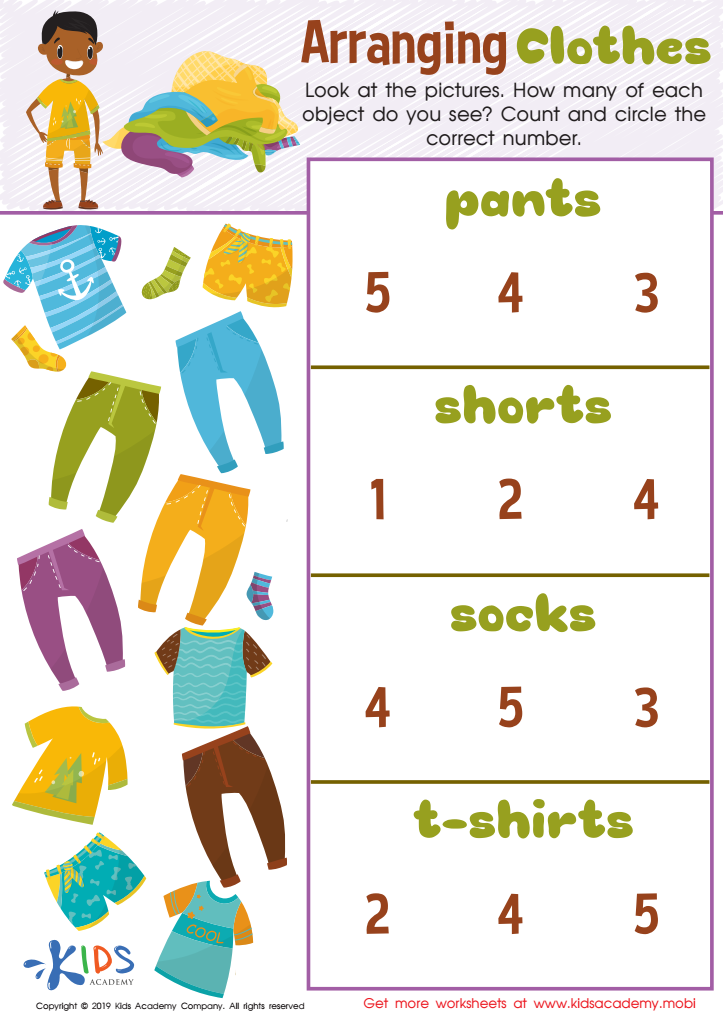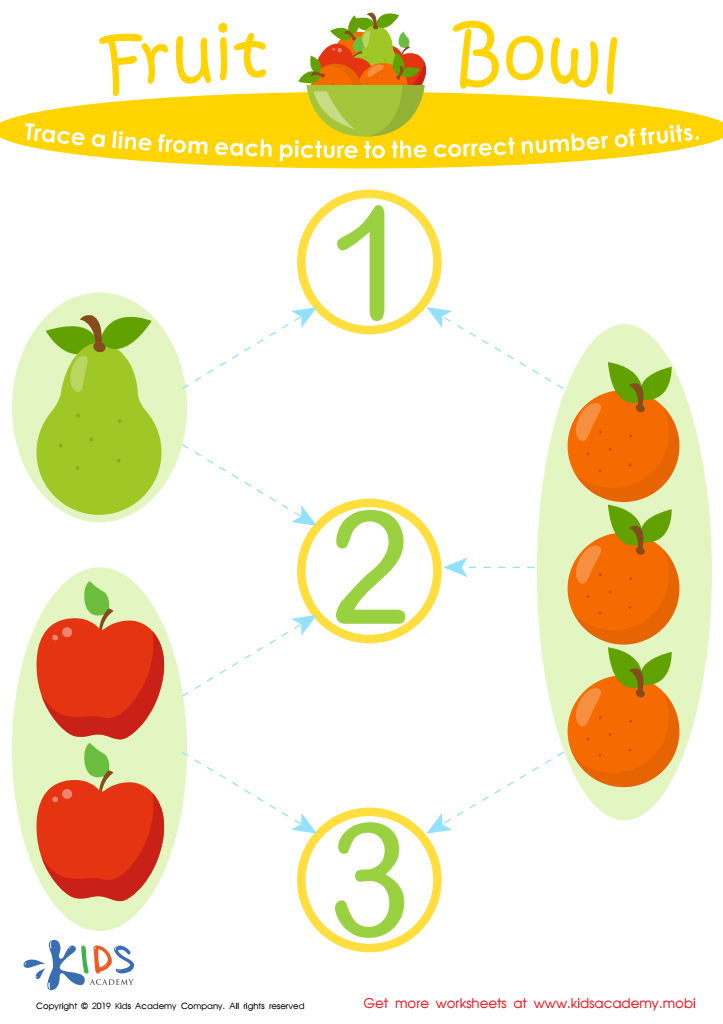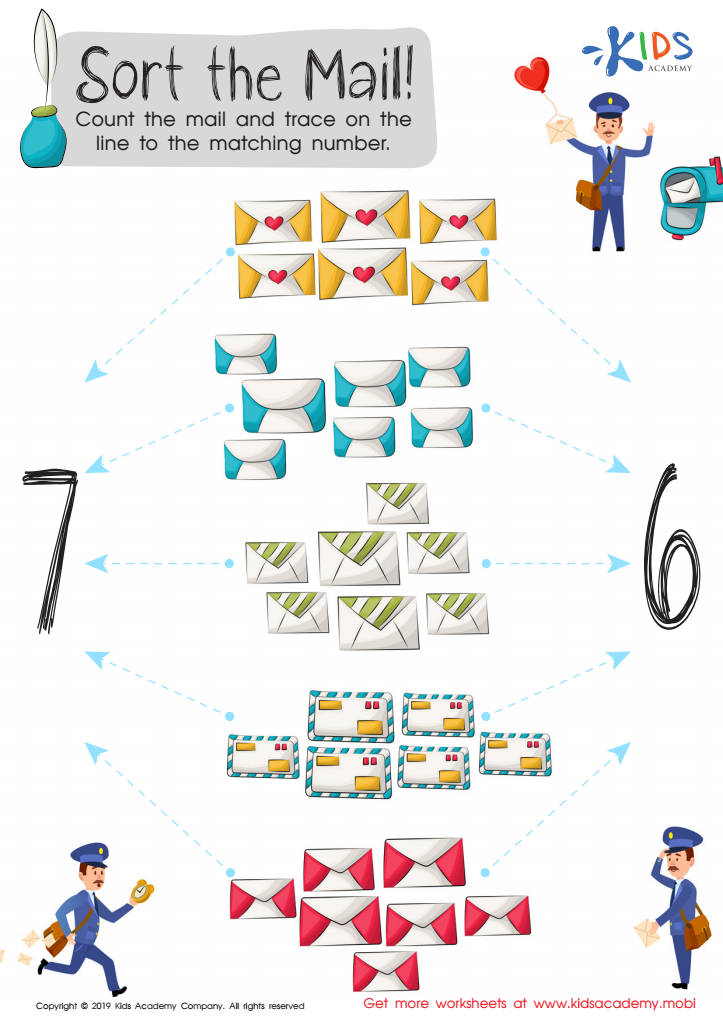Sorting skills Numbers 0–10 Worksheets for Ages 6-9
3 filtered results
-
From - To
Cultivate numerical proficiency with our engaging Sorting Skills Numbers 0-10 Worksheets, tailored for ages 6-9. These expertly designed activities foster key math skills through sorting and organizing numbers, enhancing children's understanding of numerical order and relationships. Perfect for home or classroom use, our worksheets encourage independent learning and bolster confidence in young mathematicians. With colorful illustrations and varied exercises, kids can practice number recognition, sequencing, and pattern formation. Ideal for reinforcing foundational math concepts, our worksheets offer a fun and educational approach to mastering numbers 0-10. Start a journey toward mathematical excellence today!


Arranging Clothes Worksheet


Fruit Bowl Worksheet


Sort the Mail Worksheet
Parents and teachers should care about developing sorting skills with numbers 0–10 for children aged 6-9 because these fundamental skills form the building blocks of mathematical understanding and critical thinking. Sorting numbers helps children recognize patterns, which is essential for grasping more complex mathematical concepts later on, such as addition, subtraction, multiplication, and division.
When children sort objects or numbers, they learn to categorize based on specific attributes, such as size, quantity, or value. This process encourages logical thinking and enhances problem-solving abilities. For instance, when sorting numbers from 0 to 10, children start to understand numerical order, which strengthens their number sense—an ability crucial for success in arithmetic.
Furthermore, sorting activities can be directly linked to real-life situations, helping children make the connection between abstract numbers and their practical applications. For example, sorting coins, toys, or other objects can teach them both about quantities and financial literacy in a playful and engaging way.
Additionally, these activities can boost their cognitive development, enhance memory, and improve organizational skills. These benefits extend beyond math, as sorting and classifying are skills applicable in science, reading comprehension, and daily activities. Overall, focusing on sorting numbers as part of early education provides a strong foundation for future academic success and effective problem-solving in everyday life.
 Assign to My Students
Assign to My Students



















